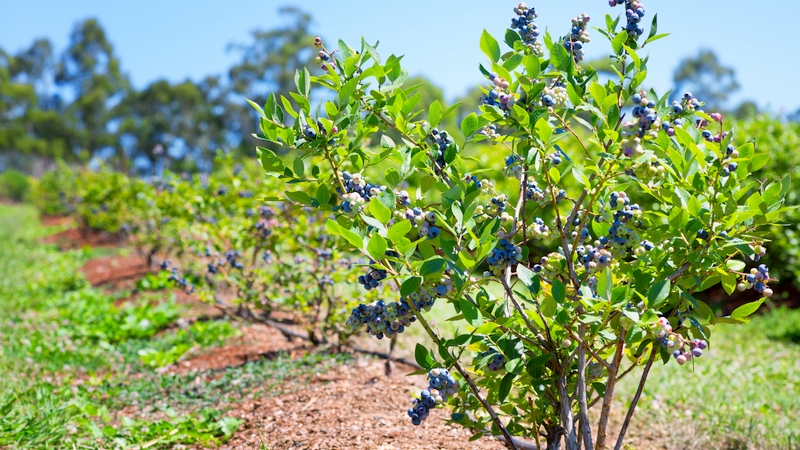Labor Update: The Battle To Harvest
It is a never-ending saga. Having enough workers to harvest crops is a battle some have faced for nearly two decades — or longer.
You are constantly dealing with red tape as it relates to your workforce, and just a couple of months ago, E-Verify was again brought into the limelight. The ag industry has been vocal about how detrimental E-Verify will be for growers, as the purpose of the program is to check the social security numbers of new employees against Social Security Administration and Department of Homeland Security records to make sure they are eligible to work in the U.S. If implemented in the ag industry, however, it will be devastating as many ag workers are undocumented and, as a result, would be forced to leave the country, greatly reducing the number of people available to harvest crops.

C. Bryan Little
According to C. Bryan Little, the COO of Farm Employers Labor Service and the director of employment policy for the California Farm Bureau Federation, if the government wants to implement E-Verify for ag workers, then it needs to give them legal status to work here. “Most [ag workers] have never broken a law other than coming here illegally,” he adds.
The Big Issues
Even with the possible threat of additional government regulation and the ongoing drought plaguing those in California and other areas of the West, the biggest hurdle facing growers continues to be finding enough people to harvest crops.
“Our drought in California is causing a lot less planting and, as a result, is reducing the need for agricultural workers,” Little says. “I think if it was a normal year, and if we had plenty of water, it is likely we would have a very tight supply of labor.”
Last summer and fall, growers in California who had access to water weren’t in the clear as they also had to deal with workers jumping from farm to farm in an attempt to make more money. According to Little, farmworkers were hearing that neighboring farms were offering better pay to attract workers, so they would leave one farm in pursuit of another that perhaps paid a little better.
“[This action] caused enormous disruptions and it left growers without enough people to do the things they needed to do,” he says. “It was a bad situation all the way around.”
Working With H-2A
The situation for growers using H-2A workers isn’t a good one, either, but Little has noticed there is renewed interest. “There are still a fair number of problems with the program, but growers don’t have anywhere else to turn to obtain workers legally,” he says.
One of the biggest issues California growers are facing with the pro-gram continues to be providing housing, he explains. However, it isn’t because growers don’t want to offer housing, which is a requirement under the H-2A program.
The problem is going through the zoning process. In general, the residents of California don’t want multifamily housing units constructed, Little says.
“Farmers’ neighbors tend to have a high level of interest in what is going on near their homes,” he explains. “That farm may have been there for many years before the residential area adjoining it was built. People sometimes have a ‘not in my backyard’ mindset.”
Adding to the burden of complying with H-2A regulations, Little says growers have to deal with the fact that there is little oversight interest on Capitol Hill in the program.
“It is a relatively small program, and there are very few people in the big picture scheme of things that use [H-2A],” he explains.
An Alternate Approach

Charles Hall
Charles Hall, executive director of the Georgia Fruit and Vegetable Growers Association (GFVGA) also says he is noticing more growers in his state using the H-2A program out of necessity in spite of its flaws. Being proactive and trying to find a better solution to the labor problem, Hall says many Congressmen the GFVGA have approached would support a ‘work permit’ program for undocumented workers but without a pathway to citizenship. The ‘work permit’ essentially would allow undocumented workers to pay a fine and be employed legally in the U.S.
“The big question is when the ‘amnesty’ word gets mixed in with the media and on the radio talk shows,” he says. “The [work permit program] could be effective, but if people think it is amnesty for those who are in this country illegally, then all of a sudden the effort stops. There is a public outcry because they don’t want people here without documentation to be citizens.”
Hall recalls a time four years ago when the labor situation in Georgia was anything but stable. Fearing provisions in a state law that would penalize them for using fake work documents, migrant workers avoided Georgia. As a result, crops were left unharvested in the field. According to an economic impact study, crop losses reached nearly $75 million, impacting 80% of the state’s crops.
Wanting to avoid a repeat of that year, Hall believes some type of “work permit” program could be workable politically, but the best option not only for Georgia growers but for all growers is comprehensive reform.
“We need a comprehensive program that would do the things the House of Representatives is suggesting such as tightening down the borders and implementing E-Verify, as long as we have a guest worker program that will allow growers to bring in workers in an unbureaucratic, cost-effective way,” Hall explains.
2016 And Beyond
As we move into the political season, however, Hall isn’t holding out hope that some kind of labor and immigration legislation will be passed before a new president is in the White House. “That’s not to say it can’t be done, but the closer we get to elections the harder it is to move a controversial issue like immigration along,” he adds.
Little doesn’t see a clear political path to correct the labor situation, either. He says there are a number of people who think that if Congress and the White House are held by the same party, something will break loose — and it doesn’t matter which party. Little says he isn’t sure that will be the case.
“Immigration is an issue that tends to cause very tense emotions among politicians themselves and their constituents,” he says. “If you are a member of Congress, it doesn’t matter what you think the appropriate thing is to do on immigration policy, you are probably going to anger someone who lives in your Congressional district.”
Some way or another, though, Hall says he continues to have hope. “To me, the labor issue is one of the most frustrating components of trying to be a fruit or vegetable grower,” he says. “If we are going to continue to grow produce in this country, we’ve got to have a way to harvest it.”










